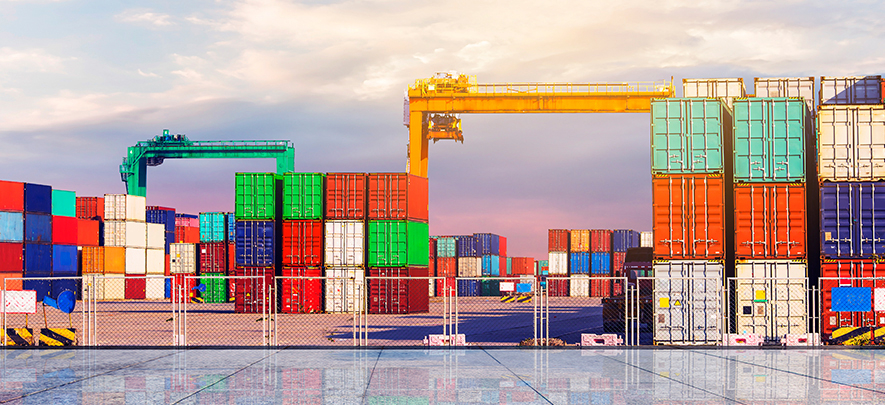Exports and imports under GST regime

Export Sector
Federation of Indian Export Organisations
358 week ago — 7 min read
GST has made a difference to all aspects of business across the length and breadth of the country. But what about those Indian businesses that are involved with trade internationally? Importing and exporting will also be a bit different under GST and here is a quick guide to see how it affects your business.
There are certain positives for the export sector across the board. They are:
- Zero Rating of exports including supply to SEZ
- Final goods/ services exports by a supplier exempted from IGST
- Imports by SEZ exempted from IGST
- CST integrated into IGST eligible for ITC refund
- ITC refund for non GST exports
- Unjust enrichment not applicable for exports
- Self declaration facility for exporters irrespective of refund amount
- Job Work on intimation and against Challan
Transitioning to the new regime also brings with it certain rules which could have bearing on your business if you are involved in exporting. The main features of transitional provisions are:
- Credit of central taxes merged in CGST to be credited in the CGST A/C while State taxes in SGST A/C
- For Inputs from EOU/EHTP, credit as per 3(7) of CENVAT
- The electronic declaration to be filed within 90 days from the appointed date
- Credit is available both under earlier law and GST law and credit is reflected in the Return for the period ending appointed date.
- Credit is available to regular tax payer. Those under composition scheme not eligible
- Closing stock to be used for taxable supplies. A registered person, not registered under earlier law, if not having duty paying document, input tax credit to be granted at 60% of the rate of the product, if the rate is 9% or more else 40% both for Central and State/U T
Definition of exports
Exports of goods means taking goods out of India to a place outside India. Export of supply means supply of service when supplier of services is located in India, the recipient of services is located outside India. The place of supply of service is outside India, the payment for such service is received in convertible foreign exchange and the supplier and recipient of services are distinct persons.
Refund of exports
If you are looking for refunds for exports then you have to note that:
- The exports not subject to export duty
- The claim to be filed has to be within expiry of 2 years from the relevant date of exports
- Relevant date based on mode of transportation is different for services exports
- Proof of realisation not required for merchandise exports but necessary for services export
For a ‘fast refund’ for export, acknowledgement for refund for exports to be issued within 3 days. 90% of the refund amount will be granted provisionally within 7 days. The balance 10% will be reimbursed after due verification of documents within 60 days. Cases delayed beyond 60 days to will get interest at the notified rate, not exceeding 6%, till the date of refund. Cases decided by Appellate or Adjudicating authority or Court will get interest at the notified rate not exceeding 9%, reckoned from the 60 days till the date of refund.
Eligibility for Provisional Refund:
- Exporter claiming refund should not been prosecuted for tax evasion > Rs 2.5 crore in past 5 years
- Exporter ‘s GST compliance rating not less than 5 on a scale of 10
- No pending appeal, review or revision on the amount of refund
Refund Procedure
Here are the steps you will be required to undertake to avail of refunds for goods and services exports:
- Goods exports : A statement containing the number and date of shipping bills and the number and date of relevant export invoices.
- Services Exports : A statement containing the number and date of invoices and the relevant Bank Realisation Certificates or Foreign Inward Remittance Certificates, as the case may be
- Where the application relates to refund of input tax credit, the electronic credit ledger shall be debited by the applicant in an amount equal to the refund so claimed.
- The application for refund to be forwarded to the proper officer who shall, within three days of filing of the said application issue an acknowledgement in FORM GST RFD-02
- Where the application relates to refund of input tax credit, the electronic credit ledger shall be debited by the applicant in an amount equal to the refund so claimed.
- The application for refund to be forwarded to the proper officer who shall, within three days of filing of the said application issue an acknowledgement in FORM GST RFD-02
Job Work
Job work is a key component of import and export for goods. Under GST, Job Work relating to exports will have special provisions under the new tax law. The new provisions are explained below:
The Principal (Exporter) may send inputs or capital goods, without payment of tax, for job work. The intimation letter to contain description of input to be sent and nature of processing to be carried by job worker. The intimation to be submitted to the jurisdiction officer by email or physical copy of letter. The exporter may retain the credit availed by him on the inputs/capital goods sent to job worker. The job worker after processing can send the goods to another job worker or send to any place of business of the exporter or exports outside India without payment of tax. Value addition will be subject to GST to enable job worker to claim ITC. Inputs to be brought back after completion of job work within one year (3 years for capital goods). Otherwise the credit will be be reversed by the Exporter.
Miscellaneous issues
Other miscellaneous points to note about the impact of GST to export:
- Ocean/Air freight on exports : Where location of supplier of service and recipient both are in India , as section 12(8) of IGST , the place of supply will be location of the recipient . Thus taxable. If the supplier of service is not registered in India as per section 13(9) of IGST the place of supply shall be the place of destination of goods, thus non taxable
- Advances: Advance by a foreign buyer exempt from IGST but advance from a Merchant to manufacturer in India subject to GST
- Commission to Foreign Agent: Covered under the definition of “intermediary services ”. As per POS rules, the location of supplier being outside India , non taxable under GST.
- Participation in Overseas Fairs/Exhibition/Conference etc: Place of supply is the place where event is actually held . Being outside the taxable territory, non taxable under GST.
This article is written by Dr. Ajay Sahai, Director General and CEO of FIEO
To explore business opportunities, link with us by clicking on the 'Invite' button on our eBiz Card.
Disclaimer: The views and opinions expressed in this article are those of the author and do not necessarily reflect the views, official policy or position of GlobalLinker.
Posted by
Federation of Indian Export OrganisationsFIEO is the apex international trade promotion organisation of India. Directly and indirectly it represents the interest of over 200,000 exporters in India. FIEO has 17 offices in...
View Federation of Indian 's profile
Most read this week













Comments
Share this content
Please login or Register to join the discussion